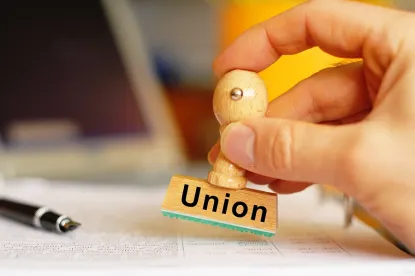On July 29, 2020, the United States Court of Appeals for the Second Circuit (the “Second Circuit”) handed down what amounts to a significant win for the collectively-bargained dispute-resolution process set forth in the agreement between ABM Industry Groups, LLC (“ABM”) and its Union, the International Union of Operating Engineers, Local 30 (“Local 30” or the “Union”)—and similar ones in agreements throughout the country. In a per curiam decision, the Court reinforced a Union’s authority as an agent for its members to administer the collective bargaining agreement (“CBA”), prosecute grievances and settle cases, which bind the Union’s members despite the fact that the individual employees are not signatory to the CBAs under which they are working.
Factual Background
The appeal stems from ABM’s contract to provide building maintenance and janitorial services for a commercial office building in Tarrytown, New York. ABM’s contractors at the site were represented by Local 30. ABM and Local 30 were parties to a CBA in effect through the end of 2017. In March 2017, a new owner purchased the Tarrytown property and notified ABM that it would not retain the Local 30-represented workers. ABM paid those workers termination pay and accrued leave pursuant to the CBA. However, without ABM’s knowledge, the new owner then rehired some of the Local 30 workers.
Local 30 later filed a grievance claiming that ABM had not paid full accrued vacation pay to two of the rehired employees. When ABM discovered these employees had been rehired, it demanded the return of termination and accrued leave pay it had previously provided them. Local 30 countered that ABM actually owed the employees money and the matter proceeded to arbitration. On October 12, 2018, the arbitrator concluded that the two rehired employees were not entitled to termination pay and directed them to repay ABM as a remedy.
ABM subsequently sought to enforce the arbitrator’s award by moving to confirm the award in the Southern District of New York. The district court declined to do so, vacating in part the arbitrator’s award, arguing that the two rehired employees were not signatories to the underlying CBA between ABM and Local 30, and thus had no basis to be bound by the agreement. ABM appealed to the Second Circuit.
Second Circuit Reverses the Lower Court and Confirms the Arbitration Award
The district court held “that a union can[not] bind its members to make payments ordered by an arbitrator under an arbitration agreement to which they were not signatories, following a process in which they did not participate.” The Second Circuit disagreed fundamentally with this conclusion, finding that under agency principles and federal labor law precedent both employees were bound by the arbitration award—after all, the employees’ Union was signatory to the CBA, the employees initiated the grievance through the Union, and the Union followed the grievance procedure set forth in the CBA to the letter. Thus, the arbitrator did not exceed her authority in ordering the remedy she saw fit.
Takeaways
The Second Circuit reinforced an axiomatic principle in labor relations that under most CBAs, the Union—as the sole collective bargaining representative for the covered employees—is typically vested with the exclusive authority to commence a grievance against the employer on behalf of its members. When the Union does so, the employees represented by the Union are bound by the resulting arbitration award. A ruling to the contrary would have upended decades of jurisprudence and created unenviable volatility in labor-management relations, ostensibly entitling individual grievants a second bite at the apple in federal court.
This decision reinforces the important role unions play in representing their members in the grievance-arbitration process, one where—as the Second Circuit noted—individual employees have little recourse to move to challenge once final, unless the employee can show the union violated its duty to fairly represent the employees and/or if the employee can otherwise demonstrate fraud, deceit or that the grievance was a “sham.” The absence of any such assertions by the employees in this case proved fatal to their challenge, underscoring the deference courts give to labor arbitrators in adjudicating private disputes and rendering awards, and unions in representing their members during the grievance process.




 />i
/>i
